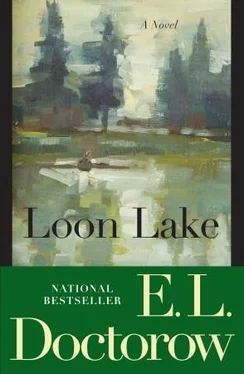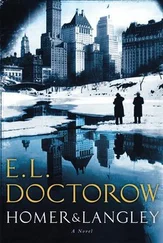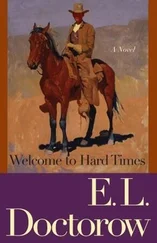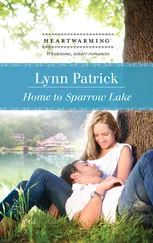They told him the dog packs were well known in the region, several of them told him that, as if it were a consolation. He had difficulty speaking through his pain and swollen tissue, so that they could not be exactly sure what he thought of them and their fucking dogs.
The elderly country doctor was eager to see what complication might set in to try him beyond the resources of his medicine.
There were pills for the pain but I took as few as I could. It seemed important to me to stay awake, to know what was going on. Maybe I would come back. The room was damp. There was a small window high on the wall. I was in the basement of one of the log buildings I’d seen and it seemed to me not a very safe place to be. Also it was as bad as the original event to dream of it again drugged in a kind of dream prison and struggling for consciousness. Pain was better. It came in spasms and with the sharp point of imprinted teeth, it tore along in clawing sweeps down my chest and seemed sometimes to raise the bandages from the skin. I tried to consider it objectively, like a scientist sitting in a white coat looking through a microscope. Ahh, peering at each little cellpoint of pain. Remarkable!
And since I was in pain, I thought of my mother and father. I thought of myself bedridden in Paterson. They look at me lying there flushed and wheezing, a boy impossibly exercised just by the act of living, and go off to work at their machines.
A man looked in on me each morning and made a grunt of disgust or scorn just like my father had although heavyset not at all like my thin and gaunt father but in the same role, with the same wordless eloquence. He wore a kind of uniform of dark green shirt and matching pants.
And for my mother a woman in pale green uniform and white shoes and opaque brown hose with a thick seam down the back. An impassive porky being with hands that worked at high speed setting down trays pounding pillows carrying off urinals while she thought her own thoughts.
I could tell that each of them felt badly used to be taking care of some tramp who had wandered onto the grounds. It was an affront to the natural order which made service to people bearable because they were higher than you, not lower.
I responded with a pride of my own which asked for nothing and gave as little indication of need as possible. And I never thanked them for anything. As I felt better I grew contemptuous as if, coming into this province of wealth, I had adopted its customs. Or perhaps it was more serious, perhaps it had been injected in the saliva of the dogs.
On the other hand I had only the word of these people that the dogs didn’t belong to the owner of this place. And even if they didn’t, they certainly ran to his advantage. My rage flared as if it were the last wound to be felt and the slowest to heal.
As time went on I understood that I lay in a room of the staff house where perhaps fifteen or twenty people lived who wore the green livery, forest-green for the outdoor workers, the paler shade for the indoor. They all looked somewhat stolidly alike, as if related.
I was alert to find a friend and I did. She was a girl of the pale green set, a young maid in the big house who shyly looked in on me, advancing each time a little farther into the room until finally she showed up in mid-morning one day when everyone else was working. She had seen we were the same age and that was enough.
Her name was Libby. She didn’t think of not answering any question that occurred to me.
This place was called Loon Lake. It was the domain of the same F. W. Bennett of the Bennett Autobody Works. Did I know the name? He was very rich. He owned thirty thousand acres here and it was just one of his places. He owned the lake itself, the water in the lake, the land under the water and the fish that swam in it.
“But not the dogs,” I said.
“Oh no,” she said, “those are wild-running, those dogs. It’s the fault of the people who own them and can’t feed them anymore. And then they go off and forage and breed wild and hunt in packs.”
“The people?”
“The dogs. All through the mountains it’s like that, not just here. Does it hurt?” she asked.
“It don’t tickle.”
A tremor went through her. She held her arms as if she was cold.
“Tell me, does your F. W. Bennett have a wife?”
“Oh, sure! She’s famous. The Mrs. Bennett who wins all the air races. Her picture’s in the papers. Lucinda Bennett?”
“Oh, her,” I said. “The one with the blond hair?”
“No, she’s a brunette.” Libby touched her own hair, which was brunet too. Like all her features it was ordinary. She was possessed of a sort of plain prettiness that caused you to study her and wish this feature or that might be better.
“Brunettes are my favorite,” I said.
She blushed. She was a simple innocent person, she granted me her own youthful face on the world without knowing who I was or where I came from. In five minutes I had her whole history. Her uncle, one of the groundkeepers, had gotten her the job. She made twelve dollars a week plus room and board. She was fervent in her gratitude. She spoke in what I could tell was the communal piety of the staff. How nervously lucky they would have to feel, how clannish in their good fortune exempt in these mountains from an afflicted age. Mr. Bennett and Mrs. Bennett came or went separately or together or had guests or didn’t, but the place was maintained all year round including the dead of winter.
“Don’t you get lonely up here?” I said.
She thought a long time. “Well, I send six dollars to my father in Albany.”
Not realizing this was enough for me to feel chastened, she frowned and cast about in her mind for justification. “You’d be surprised who comes here,” she said. She brightened “You get to see famous people.”
“Who?”
“Why, big politicians, and prime ministers from England. And Jeanette MacDonald? She was here in the spring! She’s beautiful. I saw her clothes. She gave me five dollars!”
“Who else?”
“Oh well, I never saw him, it was before I came. But Charlie Chaplin.”
“Sure,” I said. “On roller skates.”
She looked then suddenly frightened. Who would doubt her word? She turned and left the room, and I thought to myself well that’s that. But a short while later she returned, softly closing the door behind her. She held a large leatherbound book to her chest and looked at me over the gilt edge with bright excited eyes. “I better not get caught,” she said.
It was the Loon Lake guest book. She fixed the pillows so I could pull myself up and she sat on the side of the bed and opened the book to a page marked “1931.” Her index finger ran down a list of signatures and stopped and she turned her eyes on me as I saw whose signature it was: Charles Chaplin had made an elegant scrawl, and next to it, where there was a space for comment, he had written: “Splendid weekend! Gay company!”
Vindicated, Libby watched with pleasure as I became absorbed by all the names, right up to the present: signatures of movie stars, orchestra leaders, authors, senators, all famous enough to be recognized by me, but also signatures I recognized only vaguely, or only sensed as names of magnitude, like the name F. W. Bennett, names that had been given to things, names painted on the big signs over factories or carved in the stone over the entrances of office buildings. I couldn’t stop looking at them. I felt I could learn something, that there was something here, some powerful knowledge I could use. But it was in code! If only I could understand the significance of the notations, I’d have what I needed I’d know what I’d always dreamed of knowing — although I couldn’t have said what it was. I touched the signatures, traced them trying to feel the ink. It was some mysterious system of legalities and caste and extended brilliant endeavor — all abbreviated into these names and dates of proud people from all over the world who had come here to this secret place in the mountains.
Читать дальше











